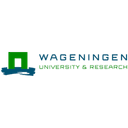This course is part of Economics and Policies for a Circular Bio-Economy.
This advanced course explores the economics and policies governing the transition to a biobased economy. Students will learn to analyze the entire value chain from research and development through processing, retailing, and final demand. The course covers sustainable business practices, circular economy trends, and policy frameworks affecting biobased products. Topics include cost-benefit analysis, macroeconomic modeling, and biofuel economics. Participants will develop skills in measuring adoption rates, assessing environmental benefits, and understanding supply chain dynamics. The course is particularly relevant for professionals managing the transition to sustainable business practices and bioeconomy implementation.
4.5
6,228 already enrolled
Instructors:
English
English
What you'll learn
Explain economic issues and policies affecting biobased economy at EU and international levels
Identify key factors driving circular bioeconomy development
Assess bioeconomy development from an economic perspective
Understand differences between biofuel mandates and price links
Upgrade knowledge about circular economy and sustainable business trends
Skills you'll gain
This course includes:
PreRecorded video
Graded assignments, Exams
Access on Mobile, Tablet, Desktop
Limited Access access
Shareable certificate
Closed caption
Get a Completion Certificate
Share your certificate with prospective employers and your professional network on LinkedIn.
Created by
Provided by

Top companies offer this course to their employees
Top companies provide this course to enhance their employees' skills, ensuring they excel in handling complex projects and drive organizational success.





There are 4 modules in this course
This comprehensive course examines the economic principles and policies driving the transition to a circular bioeconomy. Students explore the entire value chain of biobased products, from research and development to market implementation. The curriculum covers sustainable business practices, policy frameworks, cost-benefit analysis, and macroeconomic modeling. Special attention is given to practical applications through case studies in biofuels and bioplastics. The course emphasizes understanding market dynamics, environmental benefits, and policy implications in the context of sustainable resource management.
The Circular Bioeconomy and Policies
Module 1
From Precautionary Approach to CBA
Module 2
Macro Modelling
Module 3
Biofuel's Economics and Policies
Module 4
Fee Structure
Individual course purchase is not available - to enroll in this course with a certificate, you need to purchase the complete Professional Certificate Course. For enrollment and detailed fee structure, visit the following: Economics and Policies for a Circular Bio-Economy
Payment options
Financial Aid
Instructors

11 Courses
Leading Expert in Agricultural Economics and Bioeconomy Policy
Dr. Justus Wesseler serves as Professor and Head of the Agricultural Economics and Rural Policy Group at Wageningen University & Research, where he has established himself as a prominent researcher in agricultural and environmental economics. After completing his PhD in Agricultural Sciences with a specialization in Agricultural, Environmental and Natural Resource Economics from the University of Göttingen, he has built an impressive career spanning multiple institutions including Technical University Munich. His research focuses on biotechnology economics, value chains, and regulatory economics, particularly examining how these contribute to sustainability and environmental protection. As a highly cited researcher with over 6,200 citations, his work has significantly influenced understanding of bioeconomy development, agricultural policy, and environmental economics. His recent influential publications include analyses of the EU's farm-to-fork strategy and development of circular bioeconomy indicators. Through his leadership roles, including heading major EU research projects like PRICE and coordinating international academic exchanges, he continues to shape agricultural and environmental policy while examining the economic implications of new technologies and regulations. His expertise particularly shines in cost-benefit analysis under uncertainty and irreversibility, demonstrated through his work on biotechnology assessment and environmental policy analysis. Having lived and worked across multiple continents, he brings a global perspective to agricultural economics while maintaining active research collaborations worldwide.

6 Courses
Leading Expert in Agricultural Economics and Biofuel Policy Analysis
Dr. Dušan Drabik serves as Associate Professor in the Agricultural Economics and Rural Policy Group at Wageningen University & Research, where he specializes in agricultural policy analysis and biofuel economics. After completing his studies in agricultural economics, he has established himself as a highly cited researcher with over 1,300 citations, focusing on the intersection of agricultural, environmental, and energy economics. His influential work includes groundbreaking research on biofuel policies' impacts on food and energy markets, particularly examining how these policies affect price volatility in grain and oilseed markets. As a key researcher in projects like Drive-AB and various EU initiatives, he has contributed significantly to understanding agricultural policy frameworks, especially regarding climate change mitigation and market dynamics. His expertise spans multiple areas including bioeconomy development, agricultural policy analysis, and food waste economics, with particular emphasis on European agricultural markets and policy. Through his affiliation with LICOS at KU Leuven and his role at Wageningen, he continues to advance understanding of agricultural economics while focusing on Central and Eastern European economic development. His recent work examines circular bioeconomy indicators, land market regulations, and the integration of agriculture into climate policy frameworks, demonstrating his commitment to addressing contemporary challenges in agricultural and environmental policy.
Testimonials
Testimonials and success stories are a testament to the quality of this program and its impact on your career and learning journey. Be the first to help others make an informed decision by sharing your review of the course.
Frequently asked questions
Below are some of the most commonly asked questions about this course. We aim to provide clear and concise answers to help you better understand the course content, structure, and any other relevant information. If you have any additional questions or if your question is not listed here, please don't hesitate to reach out to our support team for further assistance.



